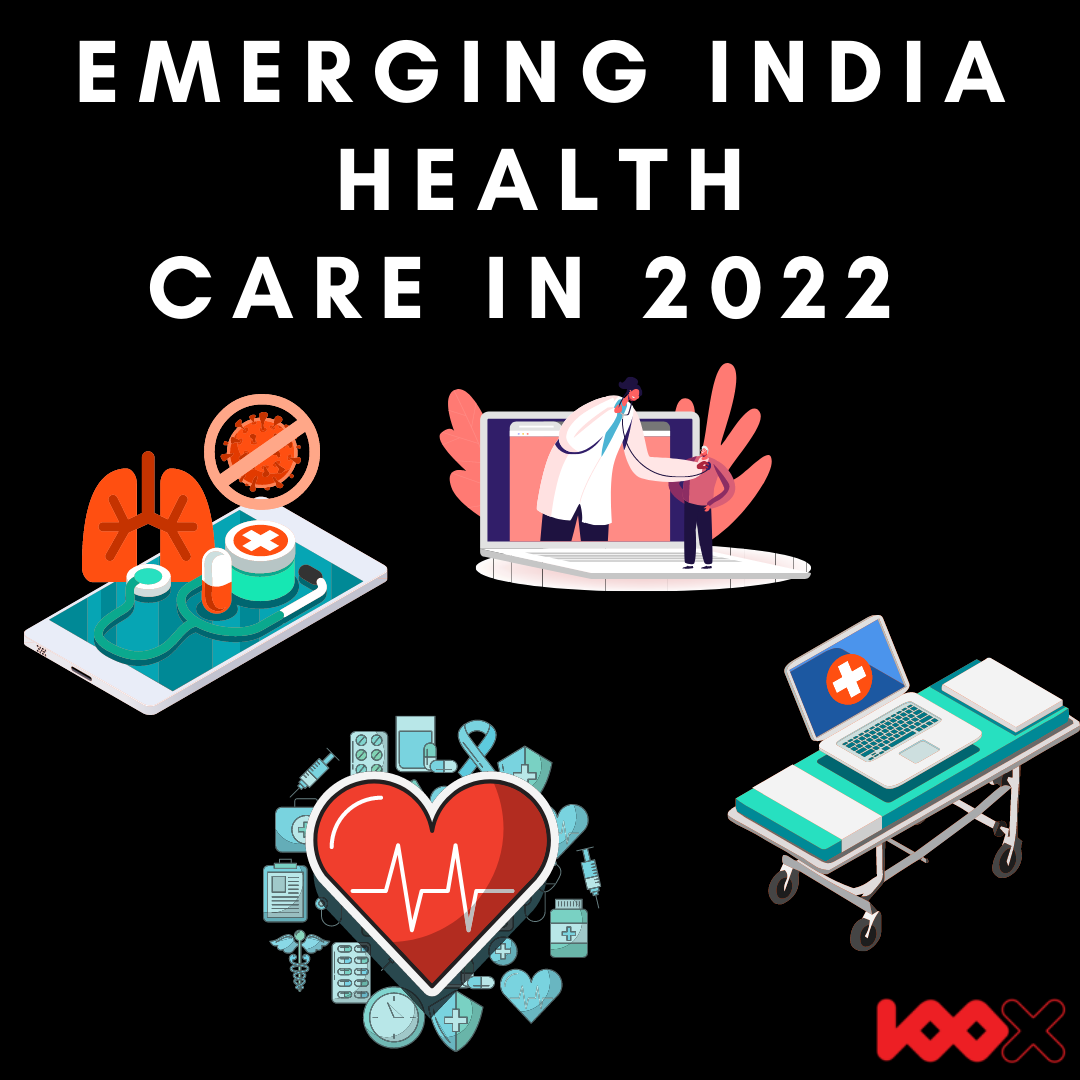
In most parts of India, getting access to good healthcare stillremains a difficulty. Despite the fact that technology has advanced by leaps and bounds in the previous decade, the majority of hospitals, doctors, and pharmacists still choose to operate from tier 1 cities/metros.. In this context, healthtech startups are a potential business idea. Many health-tech businesses have attempted to reduce the gap by making healthcare services available throughout the country and to a larger extent, they have succeeded.
Today's health tech entrepreneurs are looking beyond typical healthcare services such as diagnostics, medication distribution, and enterprise, among others. With the use of technology, new health tech businesses are focusing more on tackling current healthcare concerns and treating the core cause of health disorders. To mention a few, early detection, minimising mental stress, detecting and preventing hereditary abnormalities, and enhancing consumer lifestyle seem to be attractive. Health tech businesses use cutting-edge technologies to ensure quick access to up-to-date medical information, genetic condition histories, and lifestyle choices for effective and fast treatment. Care24, Practo, Healthkart, 1mg, DoctorInsta, Liberate, Potea, Pharmeasy, and Zoctr are just a few of the firms in this field.
Any technology or provision within the consumer care, medical care, or broader healthcare system that has been enabled or revolutionised by modern computing and/or engineering is referred to as HealthTech. Smartphones and applications, digitisation and electronic records, machine learning / AI, data security & encryption, nanotechnology or 3D printing, blockchain, and other technological enablers are among the underlying technological enablers. Finally, HealthTech is an umbrella term that encompasses digital health and healthcare IT, as well as other new technologies that were developed outside of the area of healthcare but are now finding use in it.
Within the healthcare industry, healthtech is the fastest growing vertical. Except for hospital and practise management software, it covers any technology-enabled healthcare product or service that can be provided or consumed outside of a hospital or physician's office. Mobility and other information technology can be provided by healthtech companies to improve healthcare delivery while lowering costs. Cloud computing, internet services, and social mobility are all used by healthtech companies to improve patient-centric healthcare.
The COVID-19 pandemic c not only halted the global economy , but it also revealed the deficiencies of the developed world's health services. As governments, health-care institutions, and corporations struggled to deal with the crisis, interest in technology and projects that could provide solutions grew.
Illness tracking, disease testing, telemedicine, biopharmaceutical research, and medical supplies startups are at the forefront of a technology-based pandemic preparedness and response ecosystem. These firms are most likely to be able to forecast, identify, track, contain, and treat outbreaks and pandemics in the future.Contributing in the creation of pandemic preparedness and response infrastructure breaks down the major companies facing the COVID-19 crisis.
Enterprise health & wellness showed the greatest increase in raised capital in the last five years by the end of 2020. Despite a somewhat flat deal count, the sector raised $8.3 billion in venture capital funding, up nearly 70% year over year. The business healthtech market is expected to grow to $1.3 trillion by 2025, with no indications of slowing down.Believing the venture ecosystem will serve as a critical incubator for technology that can help alleviate the effects of future pandemics, a mission that governments and non-governmental organisations are likely to prioritise.

HealthTech refers to all software, data, and physical solutions that are enabled by innovative innovations outside of the healthcare sector but offer new potential for data collection and analytics, as well as digital diagnosis and treatment.Technology and computational tools connected with creating and analysing huge datasets in order to generate knowledge or optimise outcomes are included in digital health. Healthcare IT refers to software solutions that help businesses improve their operations by digitising previously paper-based systems and processes (predominantly for providers).
Which value pools are attracting the greatest attention from investors?
Entrepreneurial interest in digital health has been continuously expanding over the last decade, which is good news for newcomers. Overall investment and average deal sizes have continually climbed since 2011, while the total number of deals each year has stayed essentially unchanged since 2016. The COVID-19 controversy does not appear to have reduced investor interest; based on 2020 deals to date, Rock Health forecasts a record-breaking $10.2 billion in digital health funding by the end of the year.What has changed, however, is the distribution of money across value pools, which may encourage healthcare stakeholders to seek venture capital to pursue various value pools depending on their strategies.
Digital health advances are assisting in the achievement of a long-sought healthcare industry goal: lowering healthcare costs while simultaneously enhancing patient outcomes, an outcome that is especially critical considering the impact of the pandemic. Healthcare investors and companies can effectively prosper in the fast-growing digital health market and enhance healthcare for patients around the world by deciding which value pools and tactics to focus on.These enticing forecasts for the sector can be justified by the opportunities that arise from the powerful technologies that startups employ. Because of the dynamic nature of the game, teams must always be prepared to come up with the finest solutions. Today, in addition to existing healthcare technologies, ParaTelemedicine is progressively gaining traction among paramedics and emergency responders. Companies are also using AI to improve client experiences in an attempt to make them as realistic as possible. In the future, the technology and networks produced by these firms will be extremely valuable to established businesses. We've seen this with Tatas, and it appears to be a smooth transition to maturity.
100X.VCis the first VC to invest in early stage startups using India SAFE Notes. We fund exceptional Indian founders. We deeply value our relationships with founders, co-investors, and corporations.
This article is by 100X.VC Research with contributions made by Bhairavi Nagda, Analyst Trainee at 100X.VC